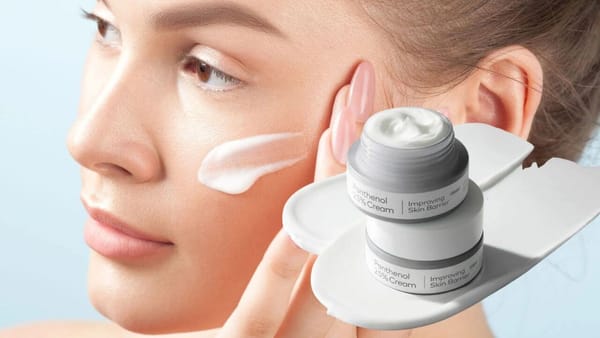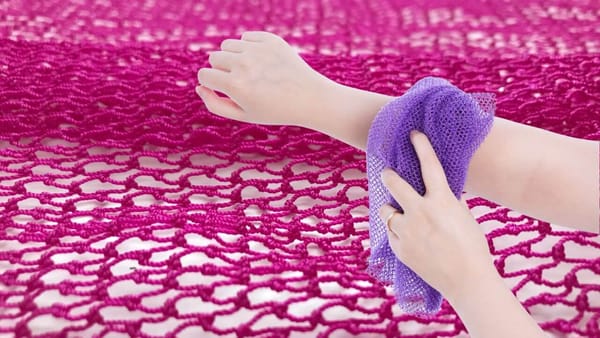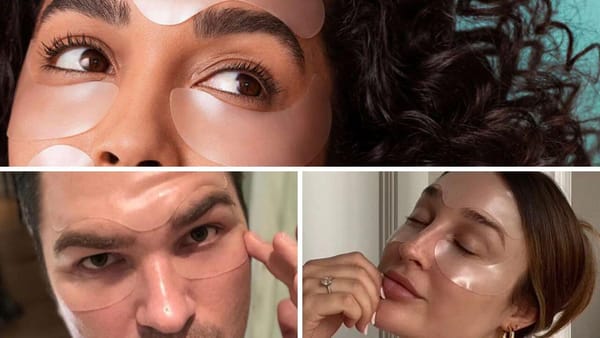Key Takeaways:
- Wedge pillows may not suit everyone, especially those with specific health conditions or sleeping preferences.
- Understanding the potential drawbacks of wedge pillows can help in making an informed decision.
- Consulting with a medical professional is crucial before making changes to your sleep setup.
Introduction to Wedge Pillows
Wedge pillows have gained popularity for their ability to provide a gentle incline, which can help alleviate issues like acid reflux and obstructive sleep apnea. These pillows are often made from memory foam or polyurethane foam, offering extra support for the upper body.
However, while they can be a boon for some, they might not be the best choice for everyone.
The National Sleep Foundation suggests that the right pillow can significantly impact sleep quality. Yet, the wedge pillow, with its unique design, may not align with everyone’s sleeping preferences or health needs, potentially affecting a good night's sleep.
Let’s delve into why some individuals might want to skip using a wedge pillow.

What is a Wedge Pillow?
A wedge pillow is a uniquely designed triangular pillow that elevates the upper body, providing targeted support and relief for various health issues. Typically crafted from materials like memory foam, polyester fiberfill, or latex, wedge pillows come in different sizes, measured in inches or degrees, to suit individual needs.
The primary purpose of a wedge pillow is to promote proper spinal alignment, which can significantly enhance sleep quality. By elevating the head and upper body, these pillows help alleviate symptoms of acid reflux, sleep apnea, and snoring, making them a valuable addition to your sleep setup.
Understanding the Purpose of Wedge Pillows
Wedge pillows are designed to elevate the head and upper body, which can help reduce symptoms of gastroesophageal reflux disease (GERD) by preventing stomach acid from traveling back up the esophagus, leading to fewer reflux symptoms.
This inclined position can also aid in keeping airways open, potentially reducing snoring and sleep apnea symptoms.
Despite these benefits, the wedge pillow’s design might not suit everyone. For instance, side sleepers might find the incline uncomfortable, leading to neck pain or improper spinal alignment. It’s essential to weigh these factors before deciding if a wedge pillow is right for you.
Who Should Use a Wedge Pillow?
Wedge pillows are particularly beneficial for individuals dealing with specific medical conditions. Those suffering from acid reflux, sleep apnea, and neck pain can find significant relief by using a wedge pillow.
Side sleepers who experience shoulder pain or pressure points may also benefit from the added support. Pregnant individuals often use wedge pillows to alleviate back pain and discomfort.
Additionally, people with gastroesophageal reflux disease (GERD), sinus problems, and snoring issues can experience fewer symptoms and better sleep quality with the help of a wedge pillow.
Potential Drawbacks of Wedge Pillows
While wedge pillows can offer relief for certain conditions, they may exacerbate others. For example, individuals with lower back pain might find that the incline places additional pressure on their spine, leading to discomfort.
Similarly, those with deep vein thrombosis should be cautious, as prolonged use of a wedge pillow could affect circulation.
Moreover, the inclined position might not be ideal for everyone. Pregnant women, for instance, might find it challenging to adjust to the wedge pillow's shape, especially as their growing belly requires different support.
It's crucial to consider these factors when evaluating whether a wedge pillow is suitable for your needs.
Impact on Spinal Alignment
Proper spinal alignment is vital for a good night's sleep. While wedge pillows can help some achieve this, they might disrupt it for others. The gentle slope of the pillow may not provide the necessary support for the cervical spine, leading to neck pain or discomfort.
For those who experience such issues, a body pillow or a different type of support might be more beneficial. Consulting with a sleep expert or medical professional can provide insights into the best options for maintaining spinal health during sleep.
Respiratory Issues and Gastroesophageal Reflux Disease
Wedge pillows are often recommended for individuals with respiratory problems, as they can help keep airways open. However, the inclined position might not be suitable for everyone.
Some people might find that the elevation increases pressure on their sinuses, leading to congestion or discomfort.
If you experience respiratory issues, it's essential to evaluate whether a wedge pillow truly provides relief or if it exacerbates your symptoms.
In some cases, alternative solutions, such as adjusting sleeping positions or using other types of pillows, might be more effective.
Pressure Points and Discomfort
The design of most wedge pillows aims to reduce pressure points by providing a gradual incline. However, this might not work for everyone. Some individuals might find that the pillow's shape creates new pressure points, leading to discomfort or disrupted sleep.
If you notice increased discomfort or pain after using a wedge pillow, it might be worth exploring other options. A pillow that better aligns with your personal preferences and sleeping habits could offer a more restful sleep experience.

Optic Nerve and Intraocular Pressure
Elevating the head can sometimes increase intraocular pressure, which might be a concern for individuals with certain eye conditions. The inclined position of a wedge pillow could potentially affect the optic nerve, leading to complications for those with glaucoma or similar issues.
Before using a wedge pillow, it's advisable to consult with an eye specialist, especially if you have pre-existing eye conditions. Understanding the potential impact on your eye health is crucial for making an informed decision.
Pregnant Women and Wedge Pillows
Pregnant women often seek pillows that provide relief and support for their growing belly. Achieving a good night's sleep can be challenging during pregnancy, and while wedge pillows can offer some benefits, they might not be the best choice for everyone. The incline might not provide the necessary support for the entire length of the body, leading to discomfort.
For pregnant individuals, a body pillow or a specially designed pregnancy pillow might offer better support and comfort. These alternatives can help ensure a more restful sleep without compromising on support.
Children and Wedge Pillows
While wedge pillows are generally not recommended for infants and young children, older children with certain health conditions might benefit from their use.
For instance, children experiencing acid reflux, sleep apnea, or neck pain may find relief with a wedge pillow, but it’s crucial to do so under the guidance of a healthcare professional.
Ensuring the pillow is used correctly can help manage these conditions without compromising the child’s comfort and safety.
Wedge Pillows and Sleeping Positions
Wedge pillows can be a versatile solution for various health issues, regardless of your sleeping position. However, they are particularly beneficial for back sleepers and side sleepers.
A wedge pillow's gentle incline aids in maintaining proper spinal alignment and relieves pressure on key areas, resulting in a more restful sleep.
Side Sleepers and Wedge Pillows
Side sleepers can reap significant benefits from using a wedge pillow. By maintaining a proper sleeping position, the pillow helps reduce strain on the shoulders and neck, alleviating shoulder pain or pressure points.
Additionally, the elevation of the upper body prevents stomach acid from flowing back into the esophagus, reducing symptoms of acid reflux and GERD. According to the National Sleep Foundation, using a wedge pillow can help side sleepers achieve a more restful sleep and improve overall sleep quality.
This makes wedge pillows an excellent choice for those looking to enhance their sleep environment and enjoy a good night’s sleep.
Alternatives to Wedge Pillows
If a wedge pillow doesn't suit your needs, there are several alternatives to consider. Body pillows, for instance, can provide support for the entire body, helping to maintain proper spinal alignment. Similarly, adjustable beds can offer the benefits of elevation without the constraints of a wedge pillow.
Exploring different options can help you find the right solution for your sleep-related issues. Consulting with a sleep expert or medical professional can provide guidance on the best alternatives for your specific needs.
The Role of Personal Preferences
When it comes to choosing the right pillow, personal preferences play a significant role. Some individuals might prefer the support and elevation of a wedge pillow, while others might find it uncomfortable. It's essential to consider your own comfort and sleeping habits when making a decision.
Experimenting with different types of pillows can help you determine what works best for you. Whether it's a wedge pillow, body pillow, or another option, finding the right fit can significantly enhance your sleep quality.
Consulting with Medical Professionals
Before making any changes to your sleep setup, it's crucial to consult with a medical professional. They can provide insights into whether a wedge pillow is suitable for your specific health needs and sleeping preferences.
A medical professional can also help identify any underlying issues that might be affecting your sleep quality. By addressing these concerns, you can make informed decisions about your sleep environment and overall well-being.

Summary
Wedge pillows can offer numerous benefits, but they're not a one-size-fits-all solution. Understanding the potential drawbacks and considering personal preferences is essential for making an informed decision. Consulting with medical professionals can provide valuable insights into whether a wedge pillow is the right choice for you.
FAQ
Are wedge pillows suitable for everyone?
No, wedge pillows are not suitable for everyone. While they can provide relief for certain conditions like acid reflux and sleep apnea, they might not be ideal for individuals with specific health issues or sleeping preferences. Consulting with a medical professional can help determine if a wedge pillow is right for you.
Can wedge pillows cause neck pain?
Yes, wedge pillows can cause neck pain for some individuals, especially if they do not provide proper support for the cervical spine. It's important to ensure that the pillow aligns with your sleeping position and offers adequate support to prevent discomfort.
What are some alternatives to wedge pillows?
Alternatives to wedge pillows include body pillows, adjustable beds, and specially designed pillows for specific needs, such as pregnancy pillows. These options can provide support and comfort without the constraints of a wedge pillow, helping improve sleep quality.



















